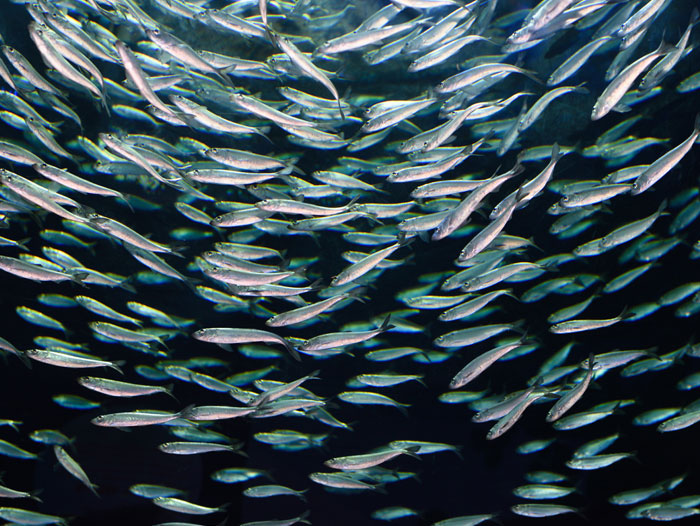Atlanto-Scandian Herring and Blue Whiting Fisheries to be Suspended
December 7, 2020 | 4 min to read

The independent assessors responsible for certifying fisheries to the MSC Fishery Standard have today announced that Atlanto-Scandian herring and blue whiting fisheries will be suspended from the program on 30 December 2020.
The suspension affects fisheries from the European Union, Norway, Iceland, the Faroe Islands, and most recently the United Kingdom, which claimed independent Coastal State status in 2020.
Atlanto-Scandian herring and blue whiting caught on or after 30 December 2020 cannot be sold as ‘MSC certified’ or bear the blue MSC label.
The Atlanto-Scandian herring fisheries that will be suspended land between 600,000 to 700,000 tonnes per year, which is around 50% of the total MSC-certified herring catches landed annually. MSC labelled herring is sold to consumers via supermarkets and fishmongers throughout Europe.
The landings of the to be suspended blue whiting fisheries are predominantly used to produce fishmeal for farmed salmon, a small quantity is sold as surimi to consumers in Japan, Australia and France.
Lack of an international quota sharing agreement
The reason for the fisheries´ suspension is the lack of an international agreement on how to manage catch levels between different nations.The absence of an effective stock management – in particular, a quota sharing agreement between the involved nations in line with scientific advice – has led to the combined catch exceeding the recommended catch levels for a number of years.
In 2019, Atlanto-Scandian herring fisheries collectively caught 32% more than the scientific advice for the year. Following the catch quotas announced by the individual states, the same will happen in 2020 [1].
The annual meeting of the Northeast Atlantic Coastal States held in October 2020 did not reach a solution to this stock management problem.
The MSC’s Northern Europe Director, Erin Priddle, said:
“We urge nations to commit to a quota-sharing agreement in line with the scientific advice. Only through effective stock management can we ensure the health of the herring and blue whiting stocks in the short, medium and long term. While individual fisheries often make great efforts to improve their sustainability, ultimately, they cannot do it alone. Migratory species like Atlanto-Scandian Herring do not observe national boundaries, so we need international agreements to manage whole ecosystems in an adaptive, scientific way, rather than managing fish resources based on national interest.”
No sustainability without effective stock management
The MSC is focused on securing and maintaining the long-term health of fish stocks. Avoiding the boom-bust cycle of overfishing and recovery is a fundamental principle of the MSC’s Standard for sustainable fishing. This is even more important in the context of climate change which is already impacting on the productivity and distribution of fish stocks [2].
Independent assessors identified that the absence of a quota-sharing system for Atlanto-Scandian herring or blue whiting could threaten the health of the stock and set a condition that nations must reach an agreement by 2020 for continued MSC certification. This was stipulated in 2015, giving fisheries a five-year time frame to work towards. Due to a lack of progress on this condition, the fisheries are now having their MSC certificates suspended.
For the same reason MSC certified mackerel fisheries in the Northeast Atlantic were suspended in 2019 and have not yet been reinstated due to ongoing concern about how catch is managed in response to scientific data on stock levels and inability to agree a quota share arrangement between the relevant fishing states.
Fisheries facing suspension from MSC certification
Atlanto-Scandian herring:
Norway spring spawning herring
SPSG, DPPO, PFA, SPFPO & KFO Atlanto-Scandian purse seine and pelagic trawl herring
Faroese Pelagic Organisation Atlanto-Scandian herring
ISF Norwegian & Icelandic herring trawl and seine (certificate expiry)
Blue whiting:
Norway North East Atlantic blue whiting
PFA, DPPO, KFO, SPSG & Compagnie des Pêches St Malo Northeast Atlantic blue whiting Pelagic Trawl
Faroese Pelagic Organization North East Atlantic blue whiting
ISF Iceland North East Atlantic blue whiting
1. This figure is obtained by relating the catch amount advice by ICES for 2020 (525,594 tonnes) to the total amount of intended catch 2020 (693,915 tonnes): ICES advice on fishing opportunities, catch and effort for Northeast Atlantic and Arctic Ocean ecoregions (2020) (p.3, Table 4)
2. IPCC Special Report on the Ocean and Cryosphere in a Changing Climate (2019) (Chapter 5)
